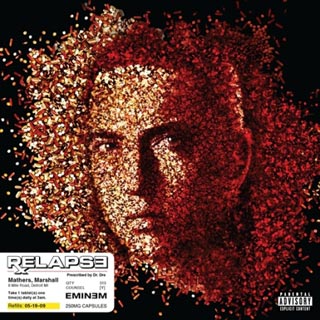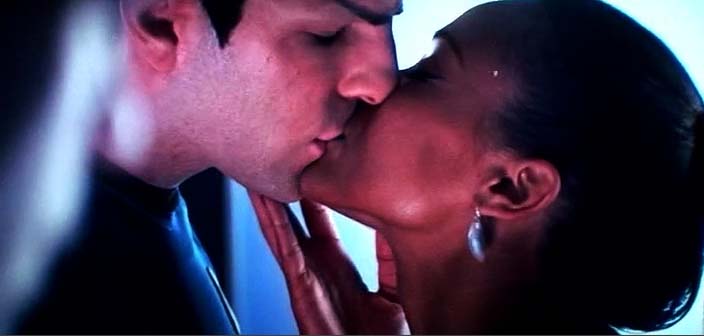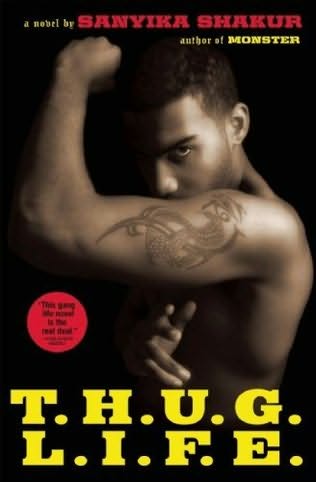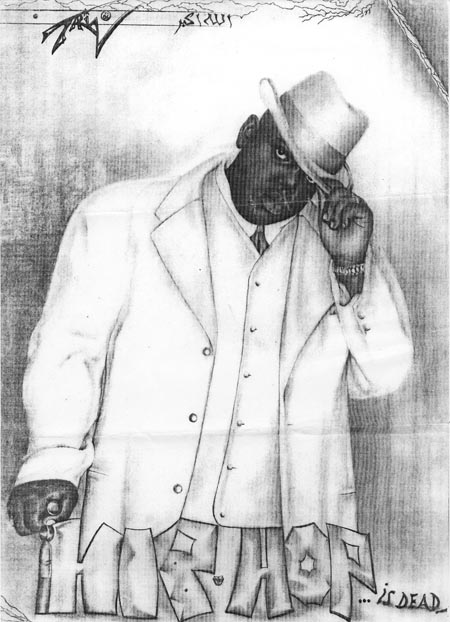Culture is something we interact with on a daily basis, and it affects
everything we do as well as how we think. Yet it’s something most people
in u.s. society pay no mind to, or do not think deeply and critically
about. Culture is a very powerful instrument of the state. Like a gun,
culture can be used for bad, destructive purposes, or for good,
liberating purposes.
Culture is something learned in a society. We are not born understanding
culture. So just as people and a society can change, so can a culture
change. When culture is passed from child to child, or from elderly to
children, generation to generation, this is called “enculturation.” When
someone is “enculturated” it means they learn what is funny in society,
what is offensive, when to eat, when to sleep, why to get angry and why
to be content. All this stuff we learned through “culture.” Everything,
like how to sleep, what to struggle for, how to sexually satisfy, all of
it is determined by culture. We have learned this stuff as a child. We
observe and see what is socially acceptable in this society and at times
we learn some of this culture in public schools where the teachers
“enculturate” us.
In a society, a culture must determine its food, shelter, laws,
education and the arts, as well as the production relations. Here in
America the culture is a capitalist culture so everything is based
around the profit system. Whether the people go without, suffer or are
exploited is beside the point. We learn from public school that America
is a liberator (which is bullshit), but we do learn this. We learn that
all are equal (except those we call terrorists). We learn all this
patriotism about BBQing on the 4th of July, making a turkey on
thanksgiving, and adding to the economic stimulus every X-mas by making
sure we run down to the mall and purchase lots of merchandise for “X-mas
presents.” All this is part of capitalist culture in the U.S.
It is so saturated by corporations that even the people are corporate
billboards, walking advertisements for corporations. Look on any street
or in any public school, and you’ll see people wearing shirts with the
words “nike,” “adidas” “tommy hilfiger,” and all the corporate sports
teams. This is basically millions of flying billboards where the people
are used to advertise products without even realizing it themselves.
Even the movies we see coming out are patriotic and glorify the dollar
and luxurious living. Music is the same and rap music in particular, for
the most part is talking about bling bling and everything revolving
around that lifestyle. U.S. society is so saturated with capitalist
culture that the vast majority can’t even comprehend any kind of culture
that is based on the peoples’ interests. Most of the U.S. population has
never studied revolutionary culture or seen how culture is a tool to
direct society, so it is completely outside of their comprehension.
Looking at what shapes culture today particularly in the oppressed
nations communities in the U.S. is most definitely the hip hop movement.
Rap music is a vital element for young people today in shaping their
culture. We saw back in the late 70s when hip hop had kids all across
the U.S. walking the streets with boombox radios, in sweatsuits,
breakdancing and popping and locking. This cultural phenomenon spread
from the ghettos to the suburbs. In the 1980s when Eazy E and NWA came
out, people across the U.S. started doing drive-by shootings and
drinking Old English 40 ouncers. So this too had a big affect on how
kids were acting and the things they were doing in society.
The 1990s saw in the beginning years of hip hop a lot of talk of dope
and money, pimping, etc. But toward the end of the 90s, 2pac started
bringing a slightly different vibe to music. A more revolutionary scant
to his music began developing, and then he was assassinated. So the
2000s came and it’s more “bling bling or die trying bling bling” type of
music in the hip hop arena. And so kids across the U.S. are once more
affected by having gold and diamond encrusted mouths, and driving SUVs
with tens of thousands of dollars worth of stereo equipment and
accessories. This is the current culture of U.S. society when it comes
to hip hop today. Of course there are a small handful of rappers who put
out a more progressive form of rap like Dead Prez, Paris, The Coup, etc.
But most people haven’t heard of these groups because they are not
getting the Madison Avenue advertisement contracts and are not getting
signed to major record labels that are more corporate-friendly. So a
progressive or revolutionary rapper may be from California and have been
rapping and selling CDs and tapes since the 80s, yet someone living in
Detroit never heard of them.
What makes hip hop so powerful is it attracts so many young people,
worldwide. It is thus a vehicle for revolutionary culture and building
public opinion. But this is something that not only revolutionaries have
noticed. The imperialists are also aware of this. Anything that can
potentially threaten capitalist society will be monitored and by any
means manipulated.
I just finished reading this book called “Malcolm X: The FBI Files.” It
was basically a chronology of Malcolm X’s life, but the most interesting
part of the book, after reading about “white devil” this and “white
devil” that, was how the feds sought any Black leaders and written in
the feds internal memos, would be things like “do not allow a
charismatic leader to unite Blacks, use manipulation, disinformation”
etc. So basically this applies to all oppressed nations people: should
the people begin to unite or organize, the state would target us for the
purpose of destroying whatever we have going. In this book it also had a
designation term called a “key figure.” Once they designated a person as
a “key figure” not long later that person was assassinated. In the book
the “memos” on Martin Luther King designated him as a key figure, and
soon after he was dead. Malcolm X was designated a key figure and soon
after that he was dead. When these memos spoke of a key figure and said
it was one who could “electrify” his people and unite them; someone who
has an overwhelming influence on the community.
Looking at hip hop again in a new light, we can see how hip hop can
indeed “electrify” the people and unite different levels of society. We
had a 2pac who practically every kid in the U.S. listened to, and who
influenced all these people in the U.S. As he began to become more
politically conscious in his music, waking up even suburban kids to some
of our political prisoners, I could imagine thousands of white suburban
kids at the dinner table after listening to Pac ask their parent, who
may be in law enforcement, or even a fed, “what’s a political prisoner?”
We can see how the state can see someone like 2pac as a possible rising
figure a vehicle to help build revolution in the U.S. We can also see
how if someone in the hip hop community like 2pac took on a real
revolutionary stance in his music, it could have made millions conscious
of what this country is really about. Public opinion would have received
a major thrust forward. This could have changed hip hop culture into
revolutionary hip hop where all major rappers began to speak reality,
opening up more minds to real struggle. The possibilities are endless.
Hip hop plays a major role here in the U.S., as the youth, the oppressed
nations, and the lumpen will be the backbone of the revolution in this
country.
To get an idea of what revolutionary culture would look like one need
only look to China under Mao, 1949-1976. In Chairman Mao’s Peoples
Republic, China underwent dramatic change from and in all areas of life.
China’s past was one like most third world countries, where exploitation
was considered the norm, peasants were worked to death by the greedy
landowners, children were sold to pay off debts, prostitution ran wild,
opium was as common as cigarettes are today, women were property,
illiteracy was the norm if you weren’t wealthy… Basically the majority
was ruled and exploited by the few.
When the revolution came, Chinese society was transformed. All areas of
life, entertainment (culture), were now in the interest of the people.
The peasants no longer toiled the fields for 18 hours, or in some cases
20 hours a day, to pay off a debt to the landlord. Now peasants worked
half days in the land they were given, or in the collective farm, and
the rest of their day they went to school to learn to read, write and
discuss revolutionary theory. Thousands of teachers and doctors from the
cities volunteered to go out to the country or the mountains where the
peasants had never seen a teacher or a doctor. They did this not for
better pay or a nicer neighborhood. Instead they did it to help, or as
Maoists say, serve the people. The ballet and opera no longer showed
plays of a capitalist nature. Now the ballet and opera showed plays of
the people struggling for revolution. In the school children no longer
learned poison, as today’s U.S. children learn: that murderers, rapists,
and genocidal psychotics like Christopher Columbus, Hernan Cortez, or
Amerigo Vespucci were American heroes.
Instead, in Mao’s China, children learned who the exploiters were and
who were the real peoples’ heroes, as well as the many revolutionary
leaders worldwide, and political theory. Unlike in U.S. prisons where
every prison cellblock has 30 bibles in the dayroom or half the prison
yard is christian or muslim, and religious chaplains make their rounds
door to door, in Mao’s China every prison cell had a stack of
revolutionary books of leading theoreticians so that prisoners could
learn of many struggles taking place all over the world. This was
provided by the revolutionary government. Every day prisoners were
allowed to participate in a large study group where they would discuss
what they were reading and grapple with theory. Even in the factories
the workers would take breaks to rest and discuss political theory in
groups. Women with children were provided collective childcare in their
neighborhood free of charge so they would work half day and partake in
study the other half to contribute to the revolution. This was the
environment in Mao’s China, and this is the revolutionary culture we can
look forward to. In revolutionary culture everything is done to advance
the revolution. In this type of environment the people will give their
all as they know their comrades right beside them are doing the same,
not for personal gain or money but for the people.
Today’s culture in the U.S. is all about money and everything is done
with personal gain as motivation. So a revolutionary culture in this
country would reverse all of this and every sphere of society would be
contributing to the people. En la lucha.












 Hip
hop culture began in the late 1970s, but it wasn’t until the middle to
late 1980s that the cultural life and expression of hip hop began to
grow and influence youth throughout amerika and the world. Many people
wrote this phenomena of hip hop culture as some fad that would soon
wither away.
Hip
hop culture began in the late 1970s, but it wasn’t until the middle to
late 1980s that the cultural life and expression of hip hop began to
grow and influence youth throughout amerika and the world. Many people
wrote this phenomena of hip hop culture as some fad that would soon
wither away.